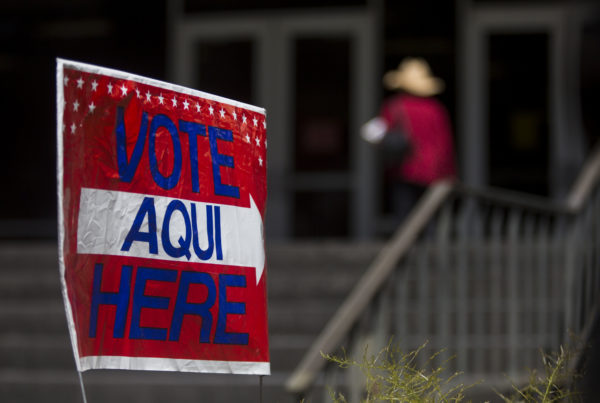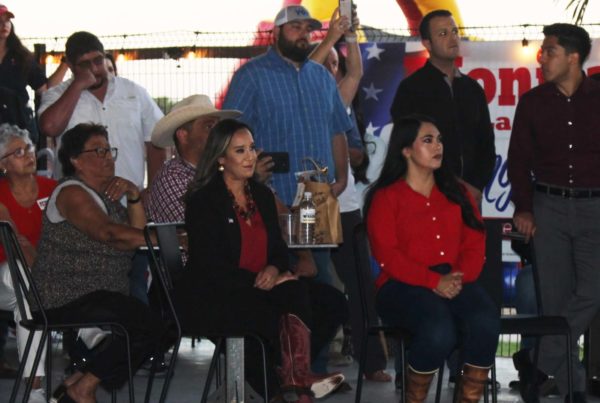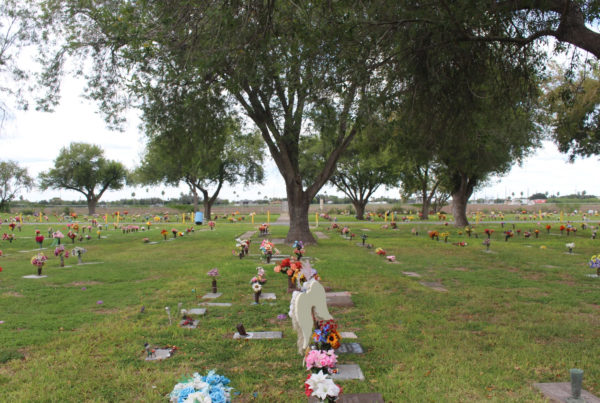“The Great Resignation.” “The Great Reshuffle.” “The Big Quit.” Whatever you want to call it, the labor market has seen profound shakeups in the pandemic era. And while many sectors have seen a return to a new normal, the same can’t be said for the childcare industry.
The New York Times recently reported that some 100,000 childcare workers are missing from the workforce compared with before the pandemic – and people are hardly rushing to fill those positions.
Texas, like the rest of the country, is dealing with understaffing in the childcare sector. According to Cynthia Juniper of UT Austin’s Ray Marshall Center for the Study of Human Resources, there are about 6 percent fewer licensed childcare providers than there were in pre-pandemic times.
Texas Standard: What’s behind the mass exodus of childcare workers? I guess a lot of folks were laid off when lockdowns started to spread.
Cynthia Juniper: That’s true. The pandemic really served to exacerbate an already-struggling childcare industry, where low wages and few benefits created an unstable workforce to begin with. So we entered the pandemic on pretty shaky ground – an industry that was running on commitment to childcare, basically commitment to children. And so when the pandemic hit and many centers closed temporarily, we had a period of time where centers were not stable financially. And so they were waiting for all the federal and state money to kick in. And during that time period, many centers closed permanently, many home providers closed permanently. And to rebuild that, we’re in that process right now trying to rebuild that.
Well, this is going to have ripple effects. Obviously, you’ve got lots of working parents or parents who are trying to work. You’ve got the kids who need care, who are at the center of this, but you’ve also got the people who are supposed to take care of these kids – at least, were once employed taking care of these kids – but now find that, what, conditions aren’t good enough? Pay isn’t good enough? What accounts for the ongoing shortage? Is lack of facilities the biggest factor? How do you sort this out?
Well, I think lack of facilities at the current time is pretty important because, prior to the pandemic, we had like over 14,000 licensed and registered facilities in Texas. Today we have a little over 13,000. And, you know, it’s about 850 providers less than pre-pandemic levels. About 6% have not returned. So we’re looking at a shortage, and the services have not come back in the same way they were prior to the pandemic. We have a fair number of childcare deserts where there’s many more children than who need care. The pandemic has impacted women particularly.
So I think the combination of trying to reopen businesses, the lag of the federal and state funding coming down to help programs, there’s still more funding to come being distributed throughout the state. And that, combined with low wages, lack of benefits, has hit the industry really hard.
Well, so what is the solution then? Is there a policy solution, or is this something that we have to hope that the economy will permit? How do you see this?
Well, we actually have a template for kind of a permanent solution to our childcare problem across the state – not only the state, but the nation. When we looked at the details of the Build Back Better Act, it would have included $400 billion for child care and early education investment over six years.
That’s not happening.
No, it’s not. But that’s what it would have taken to dramatically improve equitable access to child care and early childhood education. So in the state of Texas, it is political will. And we also have issues of quality and training that’s required, training that’s needed to provide that quality care. So it’s political will. It’s getting the funding where it needs to go and treating child care as an essential part of our economy’s infrastructure. Just as important as roads – it has to be stable, running well, doing its job to keep the economy going.














